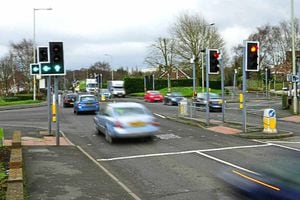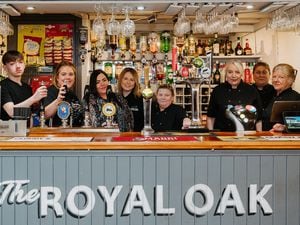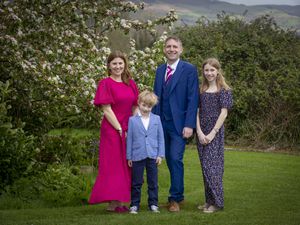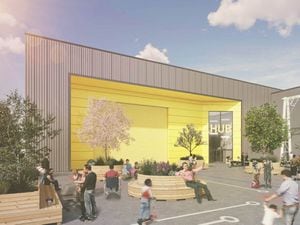Traffic lights delays 'cost economy £16bn'
Traffic lights cause unnecessary delays and lose the economy of up to £16 billion a year, according to a report that backs a campaign by a Shropshire MP.

Research by the Institute of Economic Affairs found the cumulative effect of traffic regulation measures "imposes an enormous burden on the economy". The think tank found that just a two-minute delay to every car journey equates to a loss of approximately £16 billion a year.
It follows a campaign launched by Telford MP Lucy Allan to get traffic lights on roundabouts switched off at quiet times.
Her proposal was backed by transport secretary Patrick McLoughlin in September. He said it could reduce journey times, boost business and benefit the environment by reducing the amount of time cars and lorries spend waiting at lights.
Ms Allan added that Telford & Wrekin Council had confirmed it was examining ways to improve Telford's traffic flow, which could potentially involve turning off the lights when they are not needed.
The latest report, Seeing Red Traffic Controls And The Economy, said: "Not only is a high proportion of traffic regulation detrimental to road safety, the economy and the environment, it also imposes huge costs on road-users, taxpayers and communities."

It states: "Traffic signals could be taken out where they cause unnecessary delays, perhaps following Portishead-style trials where lights are switched off for several weeks to observe the impact.
"Successful schemes in Drachten in the Netherlands and Bohmte in Germany scrapped over 80 per cent of their traffic lights. Together with the Portishead experiment, this suggests a broadly similar proportion of signals could be removed in the UK."
Dr Richard Wellings, report author and head of transport at the Institute of Economic Affairs, said: "For too long policy makers have failed to make a cost-benefit analysis of a range of regulations – including traffic lights, speed cameras and bus lanes – making life a misery for drivers.
"It's quite clear that traffic management has spread far beyond the locations where it might be justified, to the detriment of the economy, environment and road safety. The evidence of shared space schemes shows the transformational benefits of a less regulated approach, whilst the removal of a high proportion of traffic lights would deliver substantial economic and social benefits."
From 2000 to 2014 the number of traffic lights on Britain's roads increased by 25 per cent, the report said. Britain's first speed camera was installed in 1992, but by 2012 there were over 3,000 at 2,300 fixed sites, it added, noting that the "rapid expansion" of bus lanes began in the late 1990s, growing from 59 miles in 1997 to 172 miles in 2007.
Responding to the report, the Department for Transport said the "safety of Britain's roads is absolutely paramount". It added: "Road accidents come with a human cost which unfortunately, as families across the country know, is far too high."





